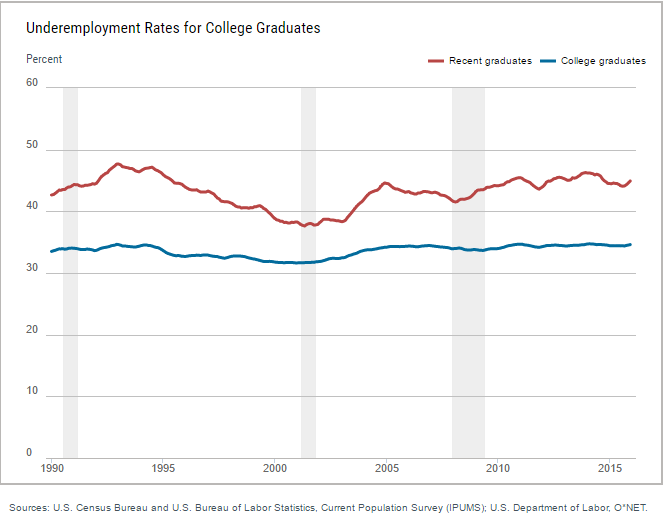Link
Yes, by all means, do something about the fake news that is propagating through Facebook and Twitter. But let's not forget that we have been in the post-truth era for some time (indeed, one wonders whether we ever entered the truth era in the first place).
After all, the rise of the post-truth era is made possible by the failures of the education system to prepare people to identify truth for themselves, and the failure of traditional media to present the news in an honest and forthright manner.
It's true, Facebook could easily cut down on the torrent of fake news stories circulating through social media simply by blocking access to a few sites. We could begin with the obvious: the
Beaverton, the
Onion, the
Manatee. That would prevent sites like
Infowarsfrom portraying their parody as
fact. And we could also cut off blatant miscreants like
the Rightists.
Some of the more prominent election memes were instigated by
abcnews.com.cofor example: "I was paid $3000 to protest a Trump Rally"). No, it's not the ABC network. That's
abcnews.go.com- the 'go.com' is in there because the news was lumped in with Disney's other properties for cross-promotion purposes.
But these 'fake news' sites are actually pretty funny. And it would be a shame to censor them. And if people can't tell the fake news from the real news, it's mostly because the real news does such an excellent job of parodying itself.
We would
liketo believe the real news can be trusted. But time and again it proves the opposite. Let's look at exactly the sort of thing we are faced with when truing to fine the 'truth' in traditional media:
- Polls and Surveys. Yes we all love 538 (and in Canada, 308). But that doesn't make up for the plastering of almost-daily poll results in every media outlet in the country (along with the usual made-up 'expanations' of why the polls went up or down). Polls are not news; punditry about pools is barely disguised fiction.
- Anniversaries. How much of traditional media 'news' content is filled with the observation that it was '50 years since...' or '100 years ago on this day...' and so on. We have holidays for that! But of course, the traditional media also reports that it's a holiday, same time, every year, as though it's news.
- Endorsing the corporate candidate. In an article quoting Barack Obama as criticizing fake news the Providence Journal does not even not the irony of its lede: "Hillary Clinton was the choice of nearly every American newspaper editorial board. It didn't matter." In Canada, we had a similar case where every newspaper endorsed former prime minister Stephen Harper. These newspapers are looking out for their corporate owners - and their readers see it plainly.
- Uncritical reporting. It's not just Donald Trump who was allowed to say pretty much anything without correction. The news media is full of people making preposterous claims. Where is the filter that allows us to screen out claims that Mexico will pay for the wall, or that corporate tax cuts will create jobs?
- Reliable sources. They aren't. When factcheck.org analyzed the election, it found that the sources of most of the lies weren't the campaigns themselves, but the supposedly trustworthy institutions like the parties' national committees. We have to learn that institutions lie, they lie frequently, and they lie very well, and the traditional media actually helps them do this.
- Media hype. Why do we even have a hype cycle? It's driven by the traditionmal media's propensity to make (or repeat) outlandish claims for often dubious technologies. Even inventions of some value fall victim (and are therefore unfairly criticized). The hype has a predictable pattern than should make it clear it's not news: "a hotbed topic; a sexy, futuristic, ‘cyberpunk’ technology; and the potential for financial returns."
- Fear. Irrational fear. I just got email from Forbes saying "what are you going to do when you lose your job in 6 months?" Never mind that this will happen to a small percentage of us (and that Forbes readers are generally able to bounce back). The purpose here is to make us terrified and afraid. Just as are the crime stories, the immigrant stories, etc.
- Supermoon and other misleading trivia. To read the traditional media, it was a once-in-a-lifetime event to see a 'supermoon'. Not counting the supermoons of 2011, 2013, and 2014, to name a few. Glorifying even the most trivial (non-controversial) thing seems to be what the traditional media do. Even then, they get many of the details wrong. But it's far easier than reporting the news.
- Advertorial - not to be confused with advertisements that look like news stories, these are news stories that are advertisements. You see them on your evening television news every day - a promotion for a new restaurant, a plug for a movie, a story about the next new Christmas toy 'craze'. Or those Black Friday stories (which are really odd coming from Canadian television).
- Obsessively chasing non-scandals. For example, spending more time talking about Hillary Clinton's emails than all policy issues combined.Even it it were a scandal (and it genuinely wasn't) it wouldn't have deserved this much coverage. What wasn't covered? Anything to do with policy.
- Unnamed sources. As Jeff Jarvis says, "the source matters". Yet in so many cases, the source in the traditional media is not named. We don't know whether it's a campaign insider or someone posing as a campaign insider.
- The echo chamber. We hear many complaints about social media being an echo chamber. But traditional media are the biggest echo chamber of them all. We hear from the same sources, the same spokesmen, the same suits and the same pundits.
- Fake experts. Who are the experts called upon by traditional media? Often, they are sources provided by lobbyists and speakers' bureaus. As this article notes, "Being published in the media sometimes provides commentators with “expert” status even if they lack expertise on the subject matter being discussed and have no relevant research on the topic."
- Reposting press releases - when I ran the Moncton Free Press I would see the exact same content coming from the local newspaper site and Canada NewsWire. There's nothing inherently wrong with a press release, but the newspaper was attributing it to 'STAFF' and passing it off as news, which is blatantly dishonest. The practice never slowed, not even when they were called out on it.
- Sloppy sloppy sloppy reasoning. The traditional media commits logical fallacies on a regular basis. Surprisingly, when I pointed this out to them, they changed nothing.
- Poor design. We get reams of old articles shared through social media pretending to be articles from today. OK, sure, it was wrong of the conservative news site to promote this article on changing the electoral college vote in Maryland. But if NBC News made the date much more prominent, it would be impossible to fool people. But that would cut down on archive views.
- Nationalism. Being Canadian, I am exposed to a lot of nationalism in media - not only our home-grown nationalism, but also from the U.S. (of course) and even from places like Britain, China and Russia. It just underlines to me how far at odd are nationalism and truth.And just how much it is relied upon by traditional media.
- Think tanks. These supposedly 'independent' voices are not. They are funded by various interests (historically from the far right but now from across the spectrum) to spead misleading research and (sometimes) outright lies. In Canada we have the Fraser Institute, the C.D. Howe Institute, the Atlantic Institute for Market Studies and many more. These should never be given an uncritical platform. But this is what the traditional media gives them every day.
- Institution envy. There are a few sources that make the traditional media go gaga. Thus we get 'The Harvard Study...', the 'Oxford report...', a 'Yale analysis...' and so on. There's nothing about the source of these items that makes them more likely to be true, nor more important, yet traditional media can't get enough of them, even though they collectively exhibit a pronounced slant.
As Jessi Hempel
writes, "In the past, the sources of accurate information were recognizable enough that phony news was relatively easy for a discerning reader to identify and discredit. The problem, (Snopes managing editor Brooke) Binkowski believes, is that the public has lost faith in the media broadly — therefore no media outlet is considered credible any longer"
We won't solve our problems with the truth by suppressing fake news. We see this in less democratic regimes, and it's never successful. We solve the problem only by having some news agencies that
get it right- that are trustworthy, and can be
knownto be trustworthy.
And note: it's not enough to create a news media that
Ithink can be trusted. The disaffected inhabit all sides of the political spectrum. The media needs to win back the Sanders supporters, the Trump supporters, and sceptical readers in Moscow and Beijing.
Yes, the failure of education and growth of inequality have been reported elsewhere. As Ben Williamson writes, " the statistics from the EU referendum indicate that the vote for leaving the EU was concentrated in geographical areas already most affected by growing economic, cultural and social inequalities, as well as by physical pain and mental
ill-healthand rising mortality rates."
And as he notes, "
Jamie Bartlett and Carl Millerof the think tank Demos wrote a report 5 years ago that highlighted a need to teach young people critical thinking and scepticism online to ‘allow them to better identify outright lies, scams, hoaxes, selective half-truths, and mistakes.’"
But let's not blame the less-educated. The most educated people in society have
madethis the environment we're living in.
Reading
Backchannel -
According to Snopes, fake news is not the problemCode Acts in Education -
Social media and public pedagogies of political mis-educationDigital Digs -
Pluralism and the nonmodern, nonliberal societyFactCheck.org -
How to spot fake newsFast Company -
How We Got to Post-TruthFast Company -
Fake U.S. News is a Global ProblemMedium -
A Call for Cooperation Against Fake NewsQuartz -
Oxford Dictionaries declare 'Post'Truth' the word of the year.
the Conversation (
Andina Dwifatm)-
Everyone’s an expert: in the digital era, fakes need to be exposedWashington Post.
Donald Trump is crashing the system. Journalists need to build a new onevia IFTTT









